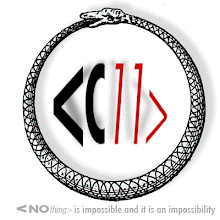 This necklace is not as described albeit that the seller seems to have chosen the language they've used rather carefully. They have used "key words – Aboriginal & maireener" to attract attention to their entry. These key words seem to have won considerable currency in the past 12 to 18 moths on eBAY. So it is worth doing some unpicking.
This necklace is not as described albeit that the seller seems to have chosen the language they've used rather carefully. They have used "key words – Aboriginal & maireener" to attract attention to their entry. These key words seem to have won considerable currency in the past 12 to 18 moths on eBAY. So it is worth doing some unpicking.maireener is a Tasmanian Aboriginal (palawa-kani) word that in its contemporary context means a group of shells 'rainbow kelp shells' – Phasianotrochus irisodontes, Phasianotrochus eximius Phasianotrochus apicinus – used and prized by Tasmanian Aboriginal shell necklacemakers. As an eBAY key word it is increasingly used euphemistically by sellers to describe almost any small iridescent/opalescent in a shell necklace. This 'eBAY euphemism' becomes deceptive and is arguably used to 'attract' buyers looking for a particular aesthetic. On eBAY the word has clearly entered the lexicon and has become a powerful, and ambiguous, key word – buyers beware.
Aboriginal (first; original; indigenous; primitive; native) is an interesting eBAY key word. It may be claimed as a 'global' word carrying the meanings that it does with the subtext 'exotic and other.' In an eBAY key word context, "Aboriginal" typical refers generically to 'Australian Aboriginal' and in relation to shell necklaces it evokes 'Tasmanian Aboriginal' . The word "aboriginal" (lower case spelling) is ambiguous and "Aboriginal" has become the convention to denote Australian Aboriginal. Nonetheless, as an eBAY key word it is ambiguous and often used that way by sellers looking to attract buyers with a particular sensibility. Interestingly when doing so, and deceptively, they turn these buyers off!
This eBAY entry is an example of the key words being used as euphemistic baits for buyers looking for the 'exotic and other'. Is the wording deceptive, naive, ill-informed and deliberate? It is an open question! Let's say all of the above but in different ways at different times and in different contexts.
GOOGLE KEY WORDS: eBAY, 120561637648, Aboriginal, Tasmania, Tasmanian, shell necklace, Ilkley, United Kingdom, vintage, antique, maireener, pearlescent, iridescent, opalescent, rainbow kelp shell, deceptive.


2 comments:
Hello Artcop11, Oh bravo to you! If you feel this certain special need to establish “correct etiquette shell school” then you must go ahead with this just worthy cause, and save us all from the dark evil world of ebay and the wicked deceitful ways of keyword listing. If these little moments during the earth’s time, bring you a warm special fuzzy feeling inside of your empty tummy, then I shall not, ever take these small accomplishing moments away from you. I too feel the same itch, a needful purpose in life to scratch my away myself and take up my own templar’s quest to save all of mankind from the devil that lurks inside the souls of all ebay sellers.
Let us all hold hands now and bring more happiness into this despairing world, so go, and be happy, be very very happy, and enjoy these rewarding experiences. Now leave and take my blessings, go out and explore this magnificent universe of little shells, and make it your whole life, you poor soul!
Well, I suppose, if no one were doing the "correct etiquette shell school", things might be more confusing than they are now. Anyone can call anything whatever they wish, but that won't be what makes it "authentic". I've personally looked at enough stuff on eBay that I can say, for example, everything called "puka" or "pooka" jewelry isn't really such. You know the real thing when you see it, and it's also evident what's junk. Some of it doesn't even come close, but sellers will still call it what they want. The uninformed won't know the difference. To those of us who want the real thing, we don't wish to waste our time sorting through anything and everything called "puka shell." The smart seller will do some fun homework.
Post a Comment